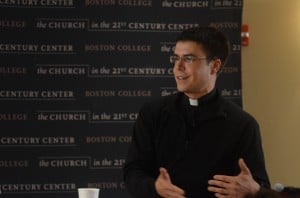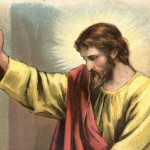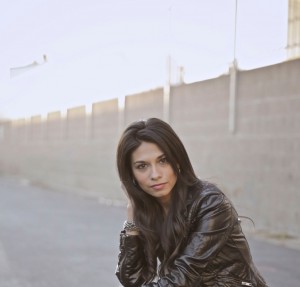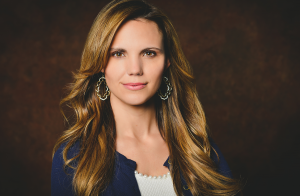Look at your bookshelf. Take stock of the titles. Now narrow them down: How many of the books there were written by Catholics? …Got it? Now, among those, ignore the theological titles from your undergrad years, along with any titles you’d consider “devotional.” In other words, how many of those books are novels, testimonials, or collections of poetry?
And now, the final filter: How many were written in the past forty years?
Chances are that precious few remain after you put your books through all three filters. After the first two, most book buffs would pat themselves on the back for having some O’Connor, Powers, or Waugh on the shelf. But you have to admit that, when it comes to works outside the realms of theology and spirituality, the forty-year mark cuts away a significant swath of Catholic writers in the average reader’s collection. (Walker Percy would have made it past the last filter, as he continued to publish until close to his death in 1990. But he probably wouldn’t have much company on the common reader’s shelf.)
Why is this the case? Where are today’s Walker Percy, Flannery O’Connor and Georges Bernanos? Or was the post-war generation of prominent Catholic writers just a fluke? As for today’s great writers – some of whom might be in your Kindle or on your second shelf – there must be Catholics among them. Do we even know who they are?
Questions like these have received plenty of attention, especially in the past year. To quote Angela Alaimo O’Donnell over at America Magazine, writer Paul Elie “dropped a literary bomb” back in December of 2012. In his New York Times essay, he declared that Christian belief only ever showed up in modern fiction “as something between a dead language and a hangover,” and this in stark contrast to the gems of decades past:
Half a century after Flannery O’Connor, Walker Percy, Reynolds Price and John Updike presented themselves as novelists with what O’Connor called “Christian convictions,” their would-be successors are thin on the ground. So are works of fiction about the quandaries of Christian belief.
Elie continues with an examination of current writers whose work makes room for belief in one sense or another: Cormac McCarthy, Jonathan Franzen, Don DeLillo, and Colum McCann. In the end, Elie finds them more puzzling than enlightening:
[W]hen I close the books their beliefs remain a mystery. Not in the theological sense — a line going off the grid of cause and effect, a portal to the puzzle of existence. I just don’t know what they believe or how they came to believe it.
It’s not that talented writers of faith don’t exist, Elie concedes. The core of the issue, as he clarified in a recent blog post, lies in writing, not in writers. So in the end, Elie continues to hang on for the kind of writing he saw in the likes of Flannery and Evelyn. He’s hopeful… Or is he? You be the judge:
[Y]ou hope to find the writer who can dramatize belief the way it feels in your experience, at once a fact on the ground and a sponsor of the uncanny, an account of our predicament that still and all has the old power to persuade. You look for a story or a novel where the writer puts it all together. That would be enough. That would be something. That would be unbelievable.
Kaboom.
Needless to say, since December of 2012, a lot of interested parties saw the smoke, and not all agreed that Elie’s bomb was on target. In January of 2013, Gregory Wolfe countered that the landscape of belief in America today is different from O’Connor’s age, and so the literature produced by America’s current writers of belief must reflect this difference. In the months that followed, others chimed in. More recently, poet and critic Dana Gioia suggested that, in the particular case of Catholic writers, there is precious little structural support (either inside or outside the Church) for newer writers who want to put their faith on the page. Flannery’s successor may be out there, but she has little chance to be heard over the secular din.
We at The Jesuit Post also took note of the smoke rising from Elie’s literary bomb. Our interest was especially piqued when we saw big names running to inspect the wreckage. So we decided to launch a series of interviews with authors to gain a sense of the state of Catholic writing today. Some of the interviewees are well-known, while other names belong to new talent – the promise of a continuing presence of writers of belief in a diverse marketplace.
Here we invite you to get in on the conversation. Head over to The Post and check out the writers on tap thus far: Nick Ripatrazone, Dana Gioia, and Kaya Oakes. Comments are welcome at the bottom of every feature page.
For now, scroll down and let us know about your bookshelf – do any Catholic writers show up there? How many would you say are “current” writers? Where are the stories that “put it all together,” and how do they pull it off?











